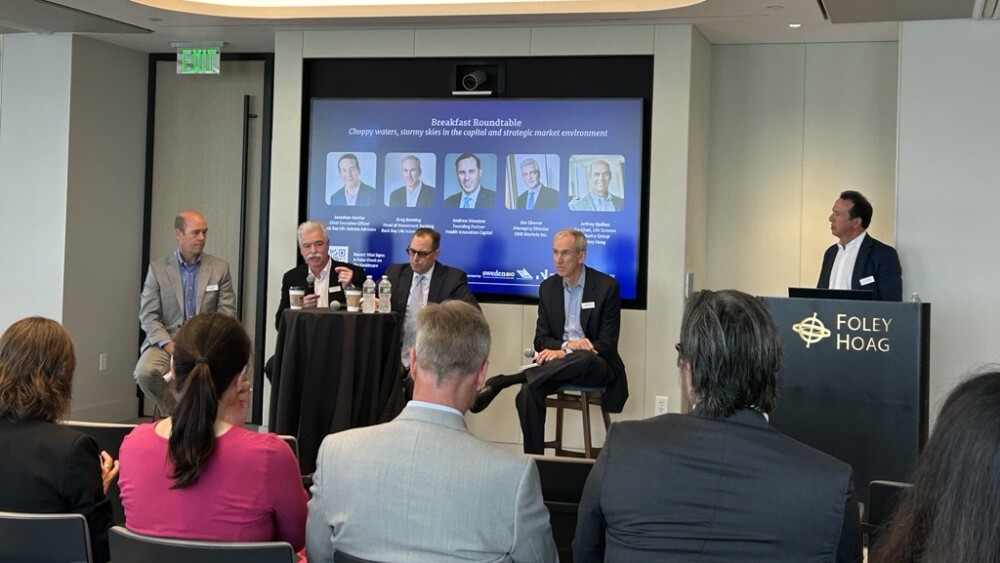WASHINGTON, June 11 /PRNewswire-FirstCall/ -- Project BioShield and other terrorism countermeasures programs are yielding successful results, according to PharmAthene Chief Executive Officer David Wright, who detailed the company's track-record of partnering with the U.S. government.
"The key is to know your customer and to meet its requirements," Mr. Wright told attendees at the 6th Annual Biodefense Vaccines & Therapeutics Conference held in Washington, DC that also featured officials from the White House, U.S. Department of Health and Human Services (HHS), U.S. Department of Defense (DoD) and other agencies.
The Annapolis, Maryland-based biodefense company, which holds several contracts with the U.S. government, also urged HHS to keep with its timetable for the procurement of a next generation (rPA) anthrax vaccine, as well as a therapeutic that could be used to treat victims of an anthrax attack. "The threat of an anthrax attack is real and already has occurred on U.S. soil. After the 9/11 attacks top U.S. science advisors urged our nation's leaders to secure a new, more effective anthrax vaccine. The existing vaccine requires up to six injections over an 18 month period, followed by yearly booster shots, and has side-effects. HHS has issued an RFP requesting a next generation vaccine with better safety and fewer doses. PharmAthene has products in advanced development to meet this urgent need," Mr. Wright said.
The Panel discussed how companies can establish and continue a partnership with HHS to produce effective next generation countermeasures for biodefense. Mr. Wright cited PharmAthene's success in partnering with the government. To date, PharmAthene and the Avecia business that it acquired in April, have been awarded grants, development contracts and other awards from the U.S. government, and other governments, for which they have received, or will receive, an aggregate of approximately $276 million, and may receive in the future under these contracts and awards up to an additional $198 million if other development milestones are met and contract extensions are exercised by the US government, in its sole discretion.
"While government funding is available, accessing those funds remains challenging," commented Mr. Wright. He noted that biodefense is essentially a brand new industry and is distinctly different from traditional biotechnology -- there is a different regulatory path utilizing the animal rule, program development is largely dependent on government funding amounts and the markets are challenging to enter. As such, frequent and fruitful communication with HHS regarding acquisition and advanced development, timelines, funding amounts, and product acquisitions is critical. Once a consistent process is in place and companies begin to deliver products to the stockpile and recognize revenue, the value of the business proposition can be realized.
About PharmAthene, Inc.
PharmAthene (Amex: PIP) was formed in March 2001 with a mission to become the premier company worldwide specializing in the development and commercialization of therapeutic and prophylactic products for defense against biological and chemical threats. Since its inception, PharmAthene has pursued an acquisitive growth strategy focused on high priority, next generation biodefense products that the government has expressed a clear need and intent to procure. PharmAthene's portfolio currently includes five potential best-in-class biodefense medical countermeasures: Recombinant Protective Antigen (rPA) anthrax vaccine; Valortim(TM), an anthrax anti-toxin therapeutic which is being co-developed with Medarex; Protexia(R) a novel recombinant bioscavenger to prevent and treat organophosphorous nerve agent poisoning; RypVax(TM), a recombinant dual antigen plague vaccine; and finally, third generation rPA anthrax vaccine technology. For more information on PharmAthene, please visit http://www.pharmathene.com.
Statement on Cautionary Factors
Except for the historical information presented herein, matters described in this press release may constitute forward-looking statements which are within the meaning of the safe harbor provisions of the Private Securities Litigation Reform Act of 1995. In some cases, forward-looking statements can be identified by words such as "believe," "expect," "anticipate," "plan," "potential," "continue" or similar expressions and relate to, among other things, the ability of the Company to achieve milestones, to access financing or contracts from US government agencies, to develop effective products or to create value for its stockholders. Forward-looking statements also include the assumptions underlying or relating to any of the foregoing statements. Such forward-looking statements are based upon current expectations or beliefs of management and are subject to a number of factors and uncertainties that could cause actual results to differ materially from those described in the forward-looking statements including, but not limited to, risks associated with obtaining regulatory approvals, unforeseen technical difficulties, dependencies on certain customers or products, market acceptance and competition, ability to receive grant and contract revenue and procurement funding, ability to identify any additional strategic acquisitions or other opportunities to accelerate growth, cash at the end of the year, as well as other risks described in the Company's filings with the Securities and Exchange Commission, in conference calls and in other communications.
Contact:
Eric I. Richman of PharmAthene, Inc.
+1-410-269-2520
richmane@pharmathene.com
Web site:
http://www.pharmathene.com




